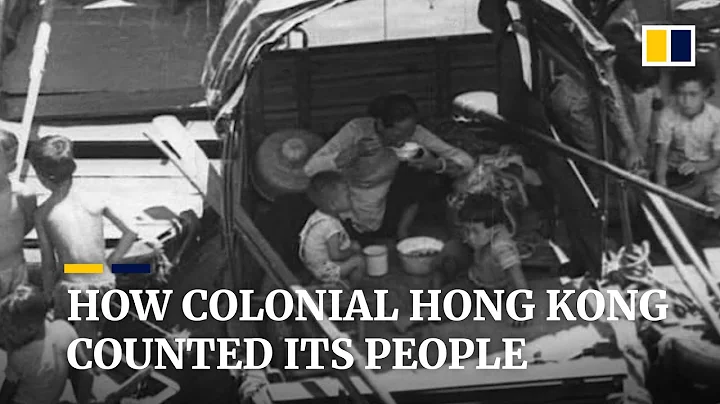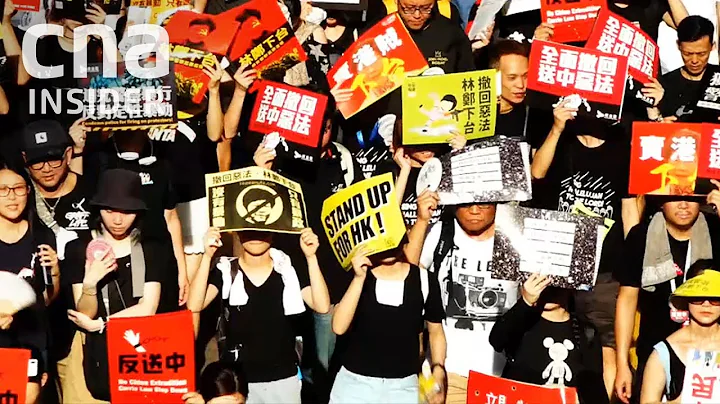In 1966, a letter from the central government shocked the entire Xingtang County, Hebei Province. This letter was written by Deng Xiaoping and asked the local government to re-investigate the incident of "villagers drowning donkeys."
But whether this incident is serious or not, according to common sense, it is impossible to attract the attention of superior leaders. But now they not only pay attention to it, but also personally issue instructions, which makes the locals curious.
Who is this ordinary villager who looks up and disappears every day, so that he can attract such attention from the central leadership.

Villager
Gao Ruyi’s heroic past
Gao Ruyi was born in Xingtang, Hebei in 1919. In that war-torn era, Gao Ruyi had a strong sense of patriotism early on.
In 1937, the Anti-Japanese War broke out in full force. Gao Ruyi, who had just turned 18, quickly joined the anti-Japanese militia organized by the local organization to make his own contribution to resisting Japanese aggression.
Facts have proved that Gao Ruyi is indeed a fierce general. Even on the battlefield for the first time, he was not afraid at all, dared to fight, and even killed two Japanese invaders with a captured bayonet.
Soon after, Gao Ruyi's anti-Japanese militia regiment merged with the Eighth Route Army. Since then, Gao Ruyi put on the uniform of the Eighth Route Army and followed the Eighth Route Army's troops in the north and south, and made many achievements in the Anti-Japanese War. credit.

Originally, Gao Ruyi wanted to return to his hometown after the end of the Anti-Japanese War, but one wave came after another. The Anti-Japanese War had just settled down, and the Liberation War broke out again. Gao Ruyi joined Liu and Deng's army again, and As a captain, he not only participated in arduous tasks such as advancing into the Dabie Mountains, but also played an important role in the battle of crossing the Yangtze River.
On April 20, 1949, the battle to cross the river officially started.
html On the evening of 021, the People's Liberation Army divided into groups of cross-river assault teams and took warships to prepare to cross the river. The assault team composed of Gao Ruyi and 6 soldiers was also among them. They were all preparing to attack under the cover of dense artillery fire. Cross the river quickly and complete the mission.But because the Yangtze River is an important position of the Kuomintang, the Kuomintang has always attached great importance to it. It not only built a large number of bunkers, but also equipped all of them with top-notch weapons and equipment. Therefore, the Kuomintang's offensive was very fierce. Water columns on the river kept rising one after another, and many warships were set ablaze. The blazing flames even hit the bottom of the river, and it was extremely tragic for a while.

Battle of Crossing the River
But the People's Liberation Army had no intention of retreating at all. They continued to row wooden boats and rushed towards the other side of the river. Even though many soldiers were knocked into the water, they still continued to swim towards the other side with simple lifebuoys.
The seven-member commando team composed of Gao Ruyi rushed to the front of the commando team and soon reached the center of the river. This undoubtedly attracted the attention of the national army, who concentrated their firepower on bombing this small team. In an instant, one person died and two were seriously injured. Even the boatman was stunned by the aftermath of the bombing.
At this time, Gao Ruyi's left arm was also hit by a bomb skin, and he was bleeding. However, as the backbone of this unit, if he got anxious, he would definitely shake the fighting spirit of other soldiers.
So he quickly rescued his unconscious comrades, ran to the bow of the ship to give command, and told his comrades not to panic.

At this time, the hull of the ship was unable to control the direction due to the enemy's bombardment, and the boatman also passed out. Gao Ruyi jumped directly into the water, used his own body to stabilize the ship, called on the soldiers to row, and shouted: We must fight across the Yangtze River and avenge our fallen comrades.
Under his leadership, the sober warrior continued to move forward despite the enemy's artillery fire. Less than 40 meters away from the shore, he led the team members and launched a face-to-face charge against the enemy.
After arriving at the shore, Gao Ruyi did not give the enemy a chance to react. He rushed forward, snatched the machine gun from the enemy, and shot him to death. Then he shouldered the machine gun and shouted, "Enter the enemy's bunker." "Continue to advance, and in just a few minutes, they took down this formation.

Faced with this situation, the enemy was very angry. When they saw that the number of Gao Ruyi and his party was very small, they wanted to take advantage of the chaos to launch a counterattack.
Gao Ruyi was keenly aware of the enemy's motives. When the enemy was outnumbered, Gao Ruyi called on his comrades to strictly guard their positions, opened grenades and threw them at the enemy. This successfully delayed time, and in the seventh company When the platoon leader came for reinforcements, they fought back the enemies who wanted to counterattack.
There is no doubt that the victory of the Battle of Crossing the River was precisely because of soldiers like Gao Ruyi who were not afraid of difficulties and had the courage to forge ahead.

After the battle, Gao Ruyi's unit won the collective first-class merit . Gao Ruyi also won the title of "River Crossing Special Class Battle Hero" for his performance, and was personally received by the leader Deng Xiaoping. .
On September 25, 1950, at the National Combat Heroes Representative Conference, Gao Ruyi was also awarded the honor of "National Special Combat Hero" in recognition of his contribution to the liberation of the country.
In the subsequent to Resist U.S. Aggression and Aid Korea , Gao Ruyi still had the courage to fight and frequently made military exploits.
However, during the Battle of Crossing the River, a piece of shrapnel was left in his left arm and caused permanent damage to him. He found that his body was slowly not as good as before, and his combat effectiveness began to retreat. Therefore, after the Battle to Resist US Aggression and Aid Korea, , Gao Ruyi made a request to return home.

Recovering as a farmer
When Gao Ruyi’s request was sent to the organization, the organization was very reluctant to let him go. He also proposed that he stay in the army for a few more years. Even if he could not go to the battlefield, he could still be an instructor.
But Gao Ruyi said that he was originally a farmer and did not like fighting. Now that the world is peaceful, he still wants to go home and be an ordinary farmer to contribute to his hometown. Secondly, he has been away from home for too long and it is time to return. The family is serving my mother.
So Gao Ruyi gave up the iron job arranged for him by the organization, packed his bags and returned to his hometown. But when Gao Ruyi returned to his hometown, his file also attracted the attention of the local government. The local government wanted to find a job for him and proactively asked Gao Ruyi what kind of work he wanted to do.
Unexpectedly, Gao Ruyi shook his head and said that his culture was not enough to do administrative work. He just wanted to be a simple porter and contribute his own strength to the construction of New China.

Farmer
So from 1956 to 1963, Gao Ruyi worked as a porter. Although his health was not as good as before and his family's life was not rich, he hardly disclosed it to anyone. Let’s face the fact that he is a special combat hero.
Those past honors and medals of merit are all treasured by him at home and in his heart.
However, due to long-term transportation work, Gao Ruyi's old injury recurred. Fortunately, with the concern of the county leaders, he went to the hospital to remove the shrapnel that had been left in his left arm. However, due to the seriousness of his condition this time, the surgery was required. The rest time is enough for half a year.
When he returned to his original job, he found that the unit had been disbanded, so he and his wife went home to farm. Although they lived in poverty, the whole family enjoyed it. If they had not been wronged later, His identity will remain hidden.

Unfair Injustice
In 1963, Gao Ruyi, who returned to his hometown to farm with his wife, was assigned to the village commune and participated in labor with everyone.
One day, it was Gao Ruyi's turn to lead the donkey to pump water, but no one expected that the originally docile donkey suddenly became rowdy. Not only did he break free of the rope, but he also slipped on his feet and fell into the well. , there were no protective measures in the wells at that time, and the donkeys that sank to the bottom of the wells died immediately.
But at that time, the value of a donkey was relatively precious, and it could be regarded as the main labor force in a village. Gao Ruyi felt very guilty, but after all, Gao Ruyi did not do it intentionally, so the brigade did not hold him accountable.

Donkey
I originally thought that this incident would just go away, but in 1966, Gao Ruyi was reported by others because of this incident. The reason for the report was that Gao Ruyi pushed the donkey into the shaft. It's intentional destruction of public property!
Many people in the village listened to the wind and joined the team that slandered Gao Ruyi, demanding that Gao Ruyi pay compensation for the donkey that died that year.
But for Gao Ruyi, being involved in a lawsuit for no reason and having to pay a large amount of damages was not the most serious thing. What was even more unbearable was that his character was questioned and slandered.
Under extreme pressure, Gao Ruyi had no choice but to ask for help from his superiors at the time, and wrote a letter to Deng Xiaoping in Beijing about what happened back then and the current situation.

After receiving the letter, Deng Xiaoping remembered this once heroic warrior and quickly wrote a reply, saving Gao Ruyi's property and reputation.
But in this way, Gao Ruyi's identity was exposed. More and more people rushed to his home to visit him. However, facing such enthusiasm, Gao Ruyi felt a lot uncomfortable.
He always believed that fighting in the war was his willing contribution to the country and there should be no additional benefits. But now that his identity is known to everyone and everyone regards him as a great hero, he feels that he has contributed a lot to the country. Trouble, and when the organization proposed to improve Gao Ruyi's salary, Gao Ruyi directly rejected it.

Deng Xiaoping
Gao Ruyi lived through the storms of war in the first half of his life. He was brave and good at fighting, and repeatedly contributed to the country. However, when peace came, he did not ask for credit, was not proud, and never talked about his own achievements. .
He is like a weather-beaten tree, silently experiencing various trials in the world and contributing to the faith in his heart. And his attitude towards life that does not seek fame and wealth not only allows him to live a contented life, but also makes the villagers around him sincerely admire him.
On January 26, 2007, 88-year-old Gao Ruyi died of illness. On the day of his funeral, the villagers spontaneously came to see him off. The procession extended from the village to the outside. Everyone was doing their part to accompany the old man. The hero completes this final journey.
References
"A Hundred Years of Memory - 100 Red Archive Stories in Shijiazhuang"





















